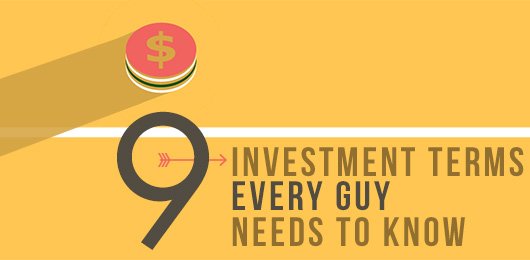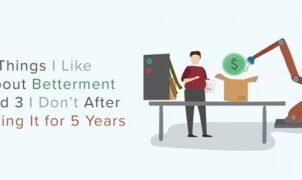To say investing is daunting can be an enormous understatement. Jumpstart your portfolio with these 9 funding phrases.
Matt Cosgriff is a Licensed Monetary Planner™ and private finance knowledgeable for younger professionals.
Whether or not you’re making an attempt to impress that particular somebody’s father or simply start investing a couple of bucks, no matter your purpose, as a younger man get the ball rolling with these 9 funding phrases. None of them will make you wealthy over evening, however all of them, when understood and acted upon accordingly, will help make sure that your funds are in tip-top form.
Compound Curiosity
Compound curiosity is any younger investor’s finest buddy. In distinction to easy curiosity, compound curiosity is the accrual of curiosity on each the principal of your funding and the curiosity that has grown and accrued with it.
Take, a $100 funding in inventory A. If that inventory grows 8% to $108, compound curiosity says that any future progress is not going to simply develop off of your unique $100 funding, however as a substitute off of the whole $108. Even higher is that if you buy a dividend paying inventory any future dividend cost gained’t be calculated off the acquisition worth of $100, however quite the market worth of $108.
Compound curiosity may be so highly effective for younger buyers that Albert Einstein as soon as stated that “compound curiosity” is the eighth surprise of the world. The takeaway? Begin saving and investing early and let the compounding impact of cash take the reins.
Trade Traded Fund (ETF)
ETFs are like a primary cousin to mutual funds in that they’re usually comparable, however have distinct variations. ETFs are typically inexpensive than their mutual fund family members, are oftentimes extra tax environment friendly, and are often extra passively managed than lots of the actively managed mutual funds.
An ETF is a sort of fund that collectively owns sure belongings, which in lots of instances are shares or bonds, after which permits buyers the chance to not directly personal these belongings by dividing possession of the fund’s shares amongst buyers. This enables buyers the chance to achieve broad publicity to an asset class (i.e. massive US shares) with out having to purchase every particular person inventory.
Roth
The phrase “Roth” refers to a sort of tax remedy utilized to retirement financial savings autos resembling an IRA or 401k. In each instances, “Roth” implies that any contributions are accomplished after-taxes have been paid on the revenue used to contribute when any cash is withdrawn for retirement it’s utterly tax-free!
That is reverse of how a “Conventional” 401k or IRA handles contributions. In that case, these contributions are literally accomplished on a “pre-tax” foundation which means that no taxes are paid in your revenue and upon withdrawing the cash at retirement any and all withdrawals shall be taxed as peculiar revenue. Typically, Roth is healthier for younger buyers who’re simply beginning out, however many components can affect this resolution.
Diversification
Diversification is conceptually pretty easy. In reality, you’ve in all probability heard the age outdated saying “do not put all of your eggs in a single basket.” On this case, the basket is what you are investing in.
Being diversified is important as a result of it helps to make sure that two issues will probably by no means occur to your portfolio: (1) you’ll by no means lose all of your cash and (2) you’ll by no means get filthy wealthy selecting the following Google. Being diversified means making certain that you’re invested broadly throughout your entire accounts and helps to mitigate the inherent ups and downs of the market.
Expense Ratio
This one is fairly self-explanatory, however being conscious of the bills you might be paying as an investor can do wonders on your portfolio. An expense ratio is just the proportion of your funding that’s paid to the fund firm (i.e. Constancy, Vanguard) to cowl the administration, administration and different bills related to working the fund.
There’s a variety of work concerned in managing a mutual fund or an ETF, and fund corporations are within the enterprise of being profitable. An expense ratio paid by an investor must compensate accordingly, however with that stated it stays important for buyers to be very conscious of the charges they’re paying. The common mutual fund expense ratio is roughly 1.25% and the typical ETF expense ratio is 0.44%. In case you have the choice, sticking with ETFs will nearly all the time assist decrease charges.
Rebalancing
Now that you simply perceive diversification it is very important perceive the way to stay diversified. Let’s say you arrange a 70% inventory and 30% bond portfolio allocation in your 401k and all is nicely. You’re feeling snug about your breakdown between bonds and shares and are excited to see your portfolio start to make some cash.
Quick ahead a 12 months and the inventory portion of your portfolio has gone gangbusters and is up 15%, however sadly your bonds misplaced 5%. The excellent news is that your portfolio has now grown from $100 to $109, however your allocation is probably going a bit out of whack. What was as soon as a 70%/30% portfolio, is now extra like a 74% inventory and 26% bond portfolio. That is definitely not the tip of the world, however over time you’ll be able to see how your unique allocation can rapidly get out of whack.
For this reason it’s often a finest apply to “rebalance,” which is a elaborate means of claiming replace your allocation to what you initially supposed it to be. Skilled opinions range on how typically you must rebalance, but it surely’s generally accepted to rebalance as often as quarterly to as occasionally as yearly.
Index
When you hearken to the information or often peruse the Wall Road Journal you’ve in all probability heard the time period “index” or perhaps you’ve heard one particularly talked about just like the “Dow” (see under). So what precisely is an index and what does it do? Effectively, Investopedia.com defines an index as “a statistical measure of change in an economic system or a securities market.” Bought it?
A inventory market index, for many who don’t maintain a PhD in decoding investor communicate is extra merely a basket of shares compiled collectively to gauge how a specific market is performing collectively. For instance, an investor is perhaps curious how massive corporations (assume Apple) are performing relative to small corporations (assume firm you’ve by no means heard of) typically so they may evaluate the S&P 500 Index to the S&P 600 Index, which might enable them to check how the five hundred largest US shares are performing relative to the 600 smallest. An index will also be used to check the efficiency of a specific inventory. On this context an index may be generally known as a “benchmark.”
The Dow
The irony of this time period is that it’s for all intents and functions ineffective. The “Dow” or Dow Jones Industrial Common is a inventory market index (see above) based in 1896 by the co-founder of the Dow Jones & Firm, Charles Dow. The “Dow” in its unique type was first calculated utilizing 12 industrial corporations (solely GE nonetheless stays within the Dow) to create a normal benchmark for the US industrial economic system.
Okay, so how is any of that related to buyers right this moment? Briefly, it isn’t. The irony of the Dow is that whereas it’s the most mentioned and revealed index within the monetary media it is usually the one which carries the least weight.
At this time the US inventory market is comprised of nicely over 4,000 shares so an index that solely encapsulates 30 of them just isn’t a good illustration of the general US inventory market efficiency. If you wish to get a very good grasp on the broad US inventory market have a look at the S&P 500 or Russell 3000, which is comprised of the five hundred and three,000 largest US shares, respectively.
Greenback Value Averaging (DCA)
Greenback Value Averaging is a elaborate strategy to say, “systematically lower your expenses,” and it’s invaluable in two very distinct methods. First, DCA is effective from the standpoint that whereas many people are nicely intentioned in terms of our cash, our busy lives generally tend to get in the best way. DCA will maintain you accountable to a financial savings plan. It merely implies that you routinely save a set quantity at set intervals. If you’re contributing to a 401k you might be probably DCA into your 401k plan by routinely contributing a set proportion every pay interval.
The opposite worth that DCA brings to buyers is the power to make sure we aren’t shopping for on the worst potential time (i.e. when the market is excessive). By making contributions to an funding account at set occasions you might be assured to purchase some shares when the market is excessive, some when it’s low, and plenty of others someplace in between. The excellent news is that you’re making certain that you simply aren’t placing a big lump-sum of cash in on the worst potential time (assume October 2007). When you haven’t automated your financial savings to reap the benefits of this straightforward idea, now can be a good time to start out.












Leave a Reply